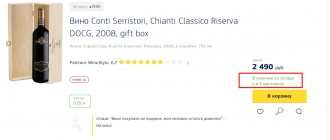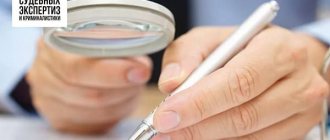Buyer's rights in case of breakdown of complex technical products
According to Article 18 of the Law of the Russian Federation dated 02/07/1992 N 2300-1 (as amended on 03/18/2019) “On the Protection of Consumer Rights”, the buyer has the right:
- demand a replacement for the same or similar product with a corresponding recalculation of the purchase price within 15 days from the date of the purchase and sale transaction;
- demand a refund for the product with the transfer of the latter to the seller within 15 days from the date of purchase.
When the 15 days have expired, the requirements can be met by:
- the presence of a significant defect in the product;
- violation by the seller of the deadlines for getting rid of the defect specified in the above law;
- impossibility of using the product during each year of the warranty period in the amount of more than 30 days due to repeated elimination of its defects.
The absence of a receipt is not a basis for refusal to fulfill the buyer's conditions.
What is quality control?
Art. 474 of the Civil Code of the Russian Federation establishes the need to check the quality of goods before sale. For some goods, inspection is directly regulated by law. In this case, it is necessary to follow the Federal Law of 2002 No. 184.
If the law or agreement does not establish rules for inspection, certification or licensing for a given object, then the inspection is carried out in accordance with the principles of business turnover for such goods.
In such a situation it is necessary:
- view the object description;
- establish technical specifications;
- check against standards;
- inspect the surface;
- determine the presence of harmful substances.
A sample may be required to be tested according to the standards.
The procedure can be carried out by the buyer, manufacturer or seller. Before making a purchase, the buyer has the right to be present during the inspection process.
For technically complex goods, diagnostics may include:
- connection to the electrical network;
- inspection;
- test (switching on, heating, etc.).
Important! If inspection cannot be carried out at the place of purchase, the seller is obliged to deliver it to a place where this is possible.
Thus, checking the quality of a product is a series of actions aimed at identifying the object’s compliance with laws, requirements and confirming serviceability/failure.
When is quality control necessary?
Quality control of a technically complex product is carried out in several stages:
- Before it's sold.
The law or contract may require the seller to carry out an inspection before transferring it to the buyer. In such a situation, the seller is obliged to provide documents that prove the fact of the inspection. If such an obligation is not provided, then the goods must by default comply with the conditions that are usually applied to goods of this type. - At the time of sale.
Also, quality control is necessary before purchasing a product. A citizen has the right to ensure that the goods are in good condition before transferring funds. If no inspection was carried out, but the buyer signed a warranty card, then he agrees that the item is in full working order at the time of purchase. - In case of detection of defects during operation during the warranty period. According to the law, if a defect is identified within 15 days from the date of purchase, then the citizen has the right to get the money back. But in practice, without quality control, the seller will refuse a return. Since there is a high probability that the cause of the malfunction was the actions of the buyer.
Dates
The buyer has the right to make claims during the warranty period or expiration date (Article 19 of the Law of 1992 No. 2300-1).
The law does not establish an exact deadline for quality control of technically complex goods. But Art. 20 of Law No. 2300-1 of 1992 establishes a 45-day period for eliminating deficiencies. Therefore, sellers take this period as a basis.
The period begins to be calculated from the moment the goods are transferred to the seller.
Who checks the quality of such products and when?
Checking product quality - analyzing products for defects. A request for a refund or replacement of goods can be made:
- to the seller;
- to the manufacturer;
- authorized organization;
- to the importer.
In accordance with Article 18 of the Law “On the Protection of Consumer Rights,” the seller or a representative of one of the organizations responsible for the sale of this product at any stage must accept the product from the buyer upon receipt of a statement about a violation of its quality.
Research into the quality of a technically complex product is carried out when the buyer contacts the seller in the store where the purchase took place, or a specialist in the service center attached to the store, with a statement that a defect has been found. In this situation, the receiving party is obliged to verify the presence of a defect, for which purpose an inspection of the goods is carried out . At this stage, outside organizations are not involved.
This procedure exists for the seller, service center specialist or other person to record the very presence of a defect and make a decision, based on the data received, about whether the buyer’s condition must be fulfilled or denied.
Timing of control activities
Article 21 of the Law “On Protection of Consumer Rights” establishes a period for checking the quality of goods if the buyer has expressed a desire to replace the goods - 20 days from the date of submission of this requirement.
When the buyer declares the remaining conditions for resolving the conflict discussed above, the legislation of the Russian Federation does not indicate specific deadlines for checking the quality of the product , however, Article 22 of the Law “On the Protection of Consumer Rights” provides for time limits for responding to received demands - 10 days from the date of receipt of the corresponding request.
Upon expiration of this period, the seller begins to bear responsibility in the form of a fine for each overdue day in the amount of one percent of the price of the goods in accordance with Article 23 of the Law “On Protection of Consumer Rights”.
How and where is the procedure performed?
Typically, this process is carried out in a store that sells complex technical goods of inadequate quality, or a service center attached to the store, but exceptions are possible. If the inspection is not feasible at the point of contact, the seller or service center specialist needs to send a responsible person to the location of the product or transport the product to the required point.
If the defect cannot be seen with the naked eye, the seller or specialist resorts to the help of special instruments and apparatus or performs certain manipulations to identify the problem.
According to Article 18 of the Law “On Protection of Consumer Rights”, the buyer must be notified of the time and place of the quality check, since he has the right to be present in order to control the objectivity of the process. He can also clarify questions that arose during the inspection, which may facilitate the detection of a product defect.
What applies to technically complex goods
There is no legislative definition of a technically complex product; there is only a list of items that the legislator classifies as technically complex. It was approved by Decree of the Government of the Russian Federation dated November 10, 2011 No. 924 (more details about such goods are described in this article) and establishes that they are:
- cars and other vehicles with internal combustion engines;
- computers;
- complex household appliances;
- power tools;
- smartphones;
- TVs;
- digital cameras, etc.
As can be seen from the list above, the law considers technically complex items made using high technology, intended for long-term use and, as a rule, performing several functions.
At the same time, some items on the list name specific products, while others describe only their characteristics, which is why the issue of classifying an item as technically complex must be decided taking into account the accompanying documentation for it. If a dispute arises on this issue between the consumer and the seller, commodity examination will help resolve it.
Differences from examination
- Firstly, the timing of these procedures differs: 20 days are allocated for analyzing the quality of the product, and from 10 to 45 days are allocated for examination, depending on the requirements received from the buyer, the conditions are described below.
- Secondly, their goals are different: the study of product quality determines the presence or absence of a product defect, and the examination determines the culprit of the defect (what are the ways and methods of assessing the quality of the finished product?).
- Thirdly, the quality analysis is carried out by a representative of the organization from which the product was purchased, while the examination is carried out by a third, disinterested person.
- Fourthly, the study of the quality of the product is paid for by the seller or the organization that carried out the sale, in any case, and the buyer may also pay for the examination and associated costs, depending on the expert’s opinion.
How is the examination of complex technical products carried out?
An examination is appointed when the seller or service center specialist confirms a defect in the product and disputes arise between the seller and the buyer as to who is to blame for the defect.
To begin the procedure, the buyer must submit to the seller a written claim and documents confirming that the product was purchased in this particular place. The seller sends the goods to a third party - an organization that will take care of the process, while he pays for the examination and the costs of transporting and storing the product.
Stages of the examination:
- General inspection (checking for the presence of impacts, chips, cracks and other mechanical defects).
- Internal inspection (examination of internal contents).
- Research of functional parameters (determining the compliance of the actual functionality of the product with the theoretical one stated in the description).
- Drawing up a conclusion (description of identified deficiencies and the reasons for their occurrence).
If the examination confirms the occurrence of defects through no fault of the seller or the company that performed the sale, the buyer is obliged to reimburse the seller or organization for the costs of:
- carrying out examination;
- transport;
- product storage.
The buyer, as well as during a quality study, has the right to be present at the examination of the product and, if he disagrees with the result of the analysis, go to court in accordance with paragraph 3 of paragraph 5 of Article 18 of the Law “On Protection of Consumer Rights”.
According to Article 19 of the Law “On the Protection of Consumer Rights”, if the warranty period is less than 2 years, the buyer has the right to make a claim after the expiration of this time, but no later than 2 years from the date of purchase of the product. If the warranty period has not been fixed, the consumer can exercise this right within 2 years from the date of purchase of the product.
The seller or the organization that participated in the sale of the product is responsible for defects in the product for which a warranty period was not established, if an examination shows that the defect occurred before the sale was made.
The seller or the organization participating in the transfer of the product to the buyer becomes responsible for defects in the product, the warranty period for which is established, if the examination does not confirm the occurrence of the defect after the sale of the product to the buyer.
Since it is in the interests of the victim to prove the occurrence of a problem before making a purchase, the buyer can resort to the help of other organizations involved in conducting examinations , separately, without the participation of representatives of the store and other companies involved in the sale of the product, by independently choosing an expert organization and concluding an agreement with it and discussing all the important details.
At the end of the process, he must attach an expert opinion to the application, but the seller may not agree with the result obtained and organize his own expert examination. If irresolvable disagreements arise between two organizations, the matter is subject to judicial review.
You can contact both government organizations and private ones. In the latter, the procedure time will be significantly reduced, but the price will increase accordingly.
VS: The consumer’s evasion from returning a technically complex product for inspection must be proven
The Supreme Court of the Russian Federation published a Ruling dated November 5, 2021 on a dispute over the collection of a fine, penalty, compensation for moral damage, and examination costs from the seller by a buyer who bought a defective smartphone.
In June 2021, Tatyana Klepikova purchased an App1e iPhone 8 smartphone from VimpelCom PJSC. While using the phone, it turned out that its video camera did not work. To determine the fault, the buyer turned to an expert, who, in his conclusion, indicated the presence of a hidden manufacturing defect in the product.
10 days after the purchase, the woman contacted the seller with a claim, demanding a return of the money paid for the product (about 50 thousand rubles). The claim, sent to the place where the purchase and sale agreement was concluded, also contained the buyer’s consent to provide the phone for verification.
Since the organization refused to satisfy the claim voluntarily, Tatyana Klepikova went to court. In the statement of claim, she asked to terminate the purchase and sale agreement, to recover from the seller the full cost of the goods, as well as a penalty for each day of delay in fulfilling obligations and a fine of 50% of the awarded amount. In addition, she asked to compensate her for moral damage in the amount of 1,000 rubles. and legal expenses in the amount of 27 thousand rubles. (including examination costs of 12 thousand rubles).
During the trial, the defendant’s representative referred to the fact that the plaintiff sent the claim to the place where the purchase and sale agreement was concluded (outlet), so it was not received by VimpelCom PJSC. Consequently, the organization was deprived of the ability to respond to customer demand.
As a result, the court partially satisfied the claim: the disputed contract was terminated, and the full cost of the phone and the costs of paying a representative in the amount of 4,000 rubles were recovered in favor of the buyer. The plaintiff, in turn, was ordered by the court to return the smartphone to the defendant. In addition, the latter was charged a state duty of 1,600 rubles. Demands for the collection of penalties, fines and compensation for moral damage were left unsatisfied by the court.
Refusing to satisfy these requirements, the court came to the conclusion that the consumer evaded returning a technically complex product for inspection. He also proceeded from the fact that the presence in the claim of a notification about the time and place of the examination is an abuse of law, since the consumer, in good faith fulfilling the requirements of the law, is obliged to hand over the goods to the seller, who, using the services of licensed organizations, sends it for quality control. Refusing to compensate for the costs of the examination, the court pointed out that the plaintiff did not need to carry out the latter, since the law allows the buyer to refuse the goods within 15 days from the date of purchase, including in relation to technically complex goods, even with a minor defect. Subsequently, the appeal upheld the decision of the first instance.
In her cassation appeal to the Supreme Court, Tatyana Klepikova asked to cancel the acts of lower courts regarding the refusal to satisfy demands for the collection of penalties, fines and examination costs.
Having studied the materials of case No. 46-KG 19-25, the Supreme Court found that the contested judicial acts do not comply with the law in terms of resolving the plaintiff’s demands for the collection of penalties, fines, reimbursement of legal expenses and compensation for moral damage.
The Supreme Court recalled that, according to the Law on the Protection of Consumer Rights, if defects are discovered in a technically complex product, the buyer has the right to refuse to execute the purchase and sale agreement and demand a refund of the money paid or make a demand for its replacement with a product of the same brand (model, article) or for the same product of a different brand (model, article) with a corresponding recalculation of the purchase price within 15 days from the date of transfer of the goods. In turn, the seller (manufacturer), an authorized organization or an authorized individual entrepreneur, or an importer are obliged to accept goods of inadequate quality from the consumer and, if necessary, check its quality. In this case, the consumer has the right to participate in the verification.
The Supreme Court noted that the lower court, concluding that the plaintiff evaded providing a smartphone for inspection by VimpelCom PJSC, in violation of the requirements of Art. 198 of the Code of Civil Procedure of the Russian Federation did not evaluate the relevant arguments of the plaintiff and the objections of the defendant. Thus, the court of first instance, when resolving the dispute, did not establish whether the parties’ actions in submitting the claim and accepting it at the place where the purchase and sale agreement was concluded complied with the requirements of the Law on the Protection of Consumer Rights and the Civil Code of the Russian Federation. He also did not find out the presence or absence of a violation by the parties of the claim procedure for resolving the dispute and did not check whether the plaintiff had the opportunity to return the goods at the place where the purchase and sale agreement was concluded. In addition, the court did not find out whether the seller of the outlet had the opportunity to ensure the acceptance of a claim from the consumer within the framework of the Law on the Protection of Consumer Rights and the Civil Code, and also did not reveal whether the defendant informed the buyer about the address for sending correspondence.
“The court, having come to the conclusion that Tatyana Klepikova had abused the right, having declared the above requirements in bad faith, in violation of the requirements of Art. 198 of the Code of Civil Procedure of the Russian Federation did not establish whether VimpelCom PJSC sent a request to the plaintiff to provide the goods for examination and whether the consumer refused to perform these actions. These circumstances were legally significant for making a decision on the stated claims, but were not taken into account as such by the court of first instance. This error was not corrected by the court of appeal when checking the decision of the lower court,” the ruling emphasizes.
The Supreme Court also did not agree with the conclusion of the lower court that the burden of proving the presence and nature of the defect during the first year of the warranty rested with the seller, because in the case under consideration the consumer initiated an examination to confirm the presence of a manufacturing defect. “In accordance with Part 1 of Art. 56 of the Code of Civil Procedure of the Russian Federation, each party must prove the circumstances to which it refers as the basis for its claims and objections, unless otherwise provided by federal law,” the definition states.
The highest authority also recalled that the amount of compensation for moral damage is determined by the court regardless of the amount of compensation for property damage. Consequently, the amount of monetary compensation collected for moral damages does not depend on the cost of the goods (work, service) or the amount of the penalty collected. Based on this, the Supreme Court pointed out, the first instance did not justify why, having identified the fact of violation of consumer rights, it refused to satisfy compensation for moral damage.
In this regard, the Supreme Court overturned the court decisions regarding the refusal to satisfy claims for the recovery of penalties, examination costs, fines and moral damages, and sent the case for a new trial of the second instance.
According to the senior partner of Yablokov and Partners, Yaroslav Samorodov, this definition shows what problems arise for sellers who have poorly established the process of transferring information from points of sale to the legal service. “Of course, there are subtleties in determining the address of a legal entity, but they should not interest a buyer who bought a phone at a retail outlet. In my opinion, in this definition, the Supreme Court “hinted” at the rule: where you bought it, that’s where the claim is made,” he explained in a commentary to AG. The expert added that large companies sometimes become so “clumsy” that one department does not know which document another has adopted. “But this should not be a consumer’s problem, but should remain a company’s problem,” the lawyer believes.
Partner of the law firm "KRP" Viktor Glushakov noted that the definition contains, rather, an assessment of specific evidence in relation to the circumstances of the case under consideration, rather than a practice-based approach. “The Supreme Court, of course, assessed the plaintiff’s good faith when sending the claim notice, but it was given solely taking into account the evidence available in the case - the claim,” he explained.
At the same time, the lawyer added, this definition can be used as a “template” when preparing a claim for the transfer of a technically complex product to the seller for examination. “For example, in a draft of such a document, according to the logic of the Supreme Court, one can indicate “consent to provide a technically complex product for inspection.” In the absence of a response to the complaint and, as a consequence, the absence of the seller’s initiative to examine the product, such “consent” of the buyer will be sufficient to conduct an examination on his own initiative,” says Viktor Glushakov.
The expert added that this judicial act once again confirmed that the seller (who, within the meaning of the Consumer Protection Law, is considered a “strong party”) is required to respond to a consumer’s complaint.
Deadlines
The examination of the product must fit within the deadlines established by Articles 20-22 of the Law “On Protection of Consumer Rights” in order to satisfy the requirements presented by the buyer. They depend on the specific type of conditions:
- 45 days if the buyer needs to eliminate product defects;
- 20 days if the product needs to be replaced;
- 10 days if other requirements apply.
If after 10 days there is no response from the seller or other person involved to the demand, the buyer may regard this as a refusal to fulfill it. Just like checking the quality of the product, upon expiration of the specified deadlines, the seller begins to bear responsibility in the form of a fine for each overdue day in the amount of one percent of the price of the product in accordance with Article 23 of the Law “On Protection of Consumer Rights”.
The countdown begins not when the buyer writes a claim, but when it is in the hands of the seller or any other person responsible for selling the goods.
Examination of technically complex goods: concept, timing
The task of commodity examination is to establish the true causes of a product malfunction (determining the quality of materials, compliance with production technology, etc.). It is carried out by employees of independent expert organizations with special knowledge in science, engineering and technology, and not by employees of the seller. The burden of selecting an expert organization and paying for its services falls entirely on the seller.
The consumer has the right to be present during the examination. Accordingly, the seller has an obligation to ensure the exercise of this right, that is, to inform the consumer about the time and place of its implementation. In this regard, it is recommended to clearly express in your claim your desire to be present during a possible examination.
Although the PZPP does not directly say this, it seems that the consumer has the right not only to be present during the procedure in question, but also to ask the expert questions, to challenge the expert’s candidacy, etc. In addition, if the consumer does not agree with the results of the examination, he can challenge her through the court.
If the expert’s findings do not confirm the occurrence of a defect before the goods are sold to the consumer, the latter will have to reimburse the seller for the cost of the examination (paragraph 4, paragraph 5, article 18 of the Law of the Russian Federation).
The examination of the quality of goods must be carried out within a time period not exceeding the time period for satisfying the requirements stated by the consumer. The terms of examination of a technically complex product are:
- 45 days - if the consumer asks to have the product repaired;
- 20 days - if a product replacement is required;
- 10 days - if other requirements are stated.






